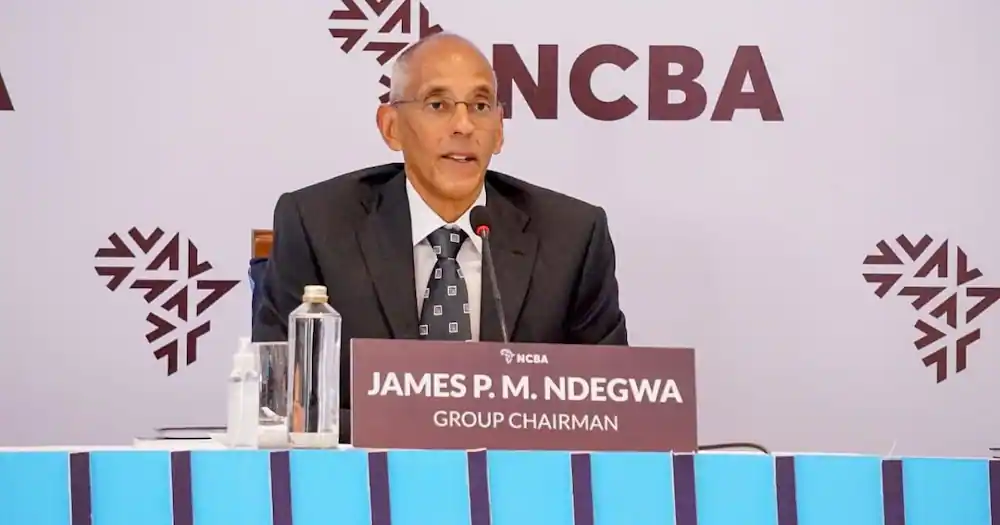The formidable business empire crafted by Kenya’s ambitious Ndegwa family offers key lessons for aspiring wealth builders seeking to sustain fortunes across generations. The Ndegwas have systematically expanded their assets over decades through strategic talent recruitment, calculated acquisitions and holding structures.
Their playbook provides a case study on consolidating power and sustaining an enterprise through economic upheavals.
How do they do it?
Recruit and empower world-class talent
The Ndegwas recognize superior talent as the engine for long-term growth. Unlike founders reluctant to let go, they actively identify and recruit seasoned, pedigreed executives from leading global corporations and grant them autonomy to lead.
This talent acquisition and empowerment strategy provides an edge over family businesses where gray-haired patriarchs stifle progress by refusing to relinquish control. John Gachora’s appointment as Managing Director of the merged NCBA exemplifies this. Gachora’s over three decades of global banking expertise brought vital stability and strategic vision to integrate complex operations and drive growth following the merger. Rather than insert family members, the Ndegwas identified an experienced leader in Gachora and empowered him to maximize opportunities. Gachora is a graduate both from the prestigrous MIT and Wharton School.
Another example was the appointment of Lopokoiyit who brought over 20 years of commercial and financial leadership experience to ICEA Lion. His diverse regional and country-level expertise in transformational roles was seen as bringing vital skills in adapting to growth and change.
Prior to ICEA Lion, Lopokoiyit held senior strategy and business leadership positions with leading multinationals. The Ndegwas targeted his blend of strategic vision and execution expertise. Lopokoiyit holds a Master’s Degree in Business Administration from Warwick Business School, United Kingdom and a Bachelor of Commerce in Accounting from the University of Nairobi.
In asset management, the team is led by Einstein Kihanda. Kihanda has over two decades of experience in investment analysis and fund management and holds a Master of Science in Finance degree from the University of Strathclyde in the UK, a Master of Science in Management and Organisational Development and Bachelor of Science in Business Administration from the United States International University (USIU).
Read more: Showmax Pro to cease operations, offer DStv Stream as alternative
In property, they are affiliated with Knight Frank Kenya, which is led by Mark Dunford, who has worked in the strategic advisory and commercial real estate sectors and was the Head of Investment and Commercial at Cavendish Maxwell. He is also the former Head of East Africa at Jones Lang LaSalle (JLL). He has also worked as the Vice President, Hotels and Hospitality Group, Sub-Saharan Africa, JLL. Dunford is a graduate of EHL Hospitality Business School and Kenton College.
Hiring such talent allows the Ndegwas to focus on high-level deal-making while leveraging experienced leaders to drive operations.
The Ndegwas’ world-class management teams contribute the stability and strategic vision to integrate complex mergers and optimize far-flung business units. Their bench strength in talent has been instrumental in expanding assets under management and capturing greater market share across their ventures.
Pursue strategic mergers and acquisitions
The Ndegwas have adeptly built their empire through bold yet calculated mergers and acquisitions designed to create revenue synergies. Their selective deal-making provides a consistent competitive advantage and has been vital to growth.
They move decisively to integrate strategic assets while lesser acquirers hesitate. Their upcoming full acquisition of the Fahari property fund comes after they acquired it from the Stanlib. The Ndegwas pounce on opportunities that others balk at. Market rumors are that they are currently are in the process of another real estate acquisition to bring in development capability.
Preserve discretion through opaque structures
The Ndegwas diligently maintain a low public profile and minimize scrutiny by conducting deals privately through opaque holding vehicles. This provides discretion to operate decisively in their empire-building pursuits.
Critics contend this lack of transparency allows conflicts of interest, such as acquiring regulated assets while chairing the regulators. Some argue the market will remain aggrieved by this apparent double-dealing. However, the privacy shields the Ndegwas and preserves their agility.
For those committed to building multi-generational wealth, the Ndegwa’s playbook provides an insightful case study on consolidating power and sustaining an enterprise across generations.
















